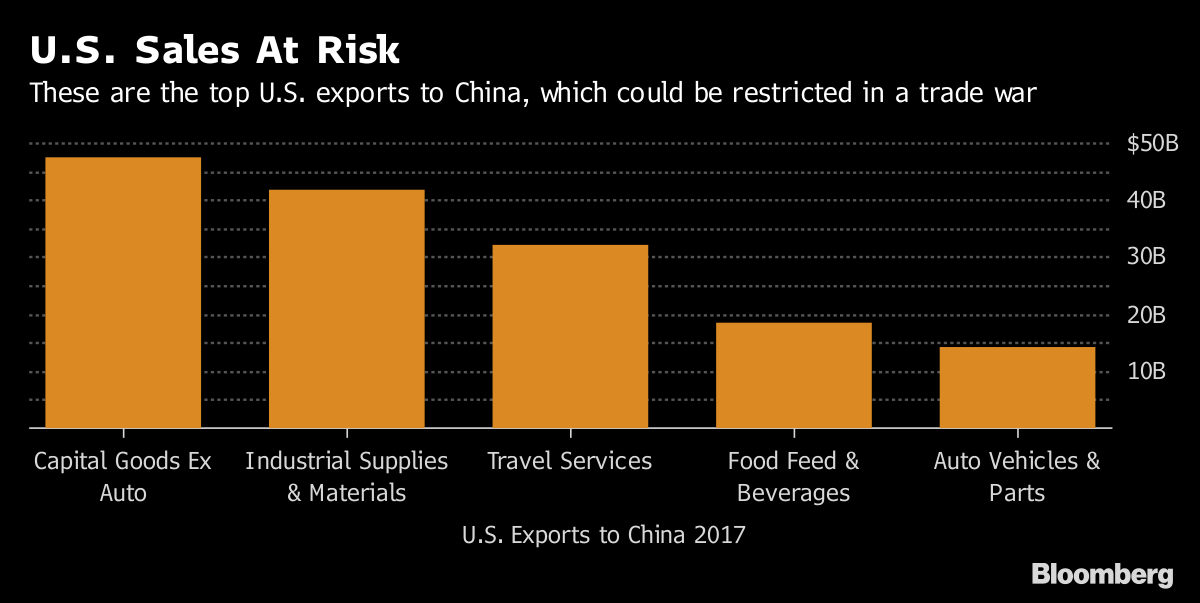China could hit back with measures against America’s $140 billion of annual exports to the Asian powerhouse if President Donald Trump imposes tariffs.
The president is expected to announce punitive actions on Thursday after the U.S. Trade Representative’s office concluded that China is violating intellectual-property rules. When the Chinese respond, “they’ll pick and choose with political aims in mind,” said Claude Barfield, a resident scholar at the American Enterprise Institute, who was a consultant to the Reagan administration on trade policy.
To date, China has followed a policy of " strategic composure" in dealing with Trump’s America First ethos. If that changes, below are some potential targets.
Agriculture
Agriculture may be on the front line of Chinese retaliation -- and the sector, one of the few in America that runs a trade surplus, is painfully aware.
The U.S. shipped $14.6 billion of soybeans to China, its biggest buyer, in the last marketing year -- more than a third of the entire crop. China is making noise about the purchases, with a Tuesday editorial in its Global Times newspaper accusing the U.S. of “dumping” its government-subsidized beans.
Rumblings against U.S. sorghum, also dependent on China trade, sent that commodity plunging in February. The chief executive of the American Soybean Association has said Chinese retaliation would have long-term consequences, as Brazil and other competitors would likely take market share.

China would feel some impact if it cuts back -- it’s heavily dependent on U.S. soybeans for cooking oil and animal feed, especially in seasons when Brazil isn’t harvesting. But the damage would be real, both economic and political. Soybean production is concentrated in middle-American states that voted for Trump.
U.S. pork exports could be another “ easy target,” amid a boost in China’s sow herd, according to Vertical Group, a New York-based investment bank.
Tech Tit-for-Tat
The purpose of USTR’s investigation was to shield the IP of American companies, a key concern in Silicon Valley. But U.S. tech companies are also vulnerable to retaliation, especially companies such as Apple Inc. and Intel Corp. that have manufacturing operations in China.
Consumer Goods
Another possibility is that China emulates the European Union’s retaliatory tactics, the AEI’s Barfield said. The EU is considering restrictions on imports of U.S. goods including Harley-Davidson motorcycles (whose maker is based in House Speaker Paul Ryan’s home state of Wisconsin) and jeans from San Francisco-based Levi Strauss & Co. (headquartered in House Minority Leader Nancy Pelosi’s district.)








